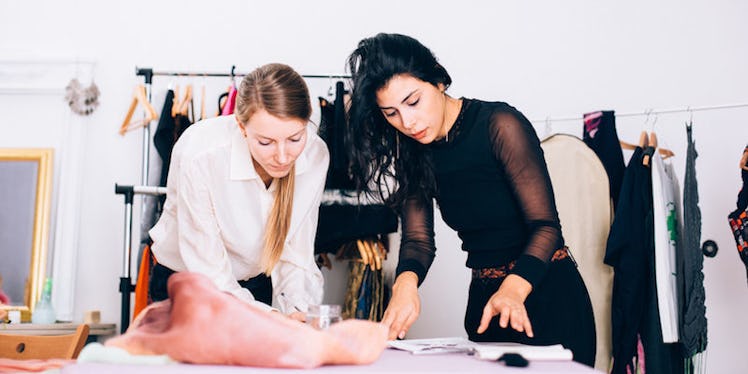
5 Ways Millennials Are Making The Fashion Industry More Accessible Than Ever
Are you born between 1980 and 2000? Then you are a Millennial. You belong to Generation-Y. Us Millennials are spending lots of time typing on our smartphones and dictating the latest trends. Past generations disapprove of us, in part out of “obligation” in order to create the famous generation gap, and also in part of reasons only they know.
The reality is Millennials are the most influential demographic in our society, and this means we dictate the trends by spending our money on what we like, and how we like it.
As a busy Millennial who spends a lot of time working, I prefer to shop online. And I am not the only one. Here are five ways Generation-Y is changing the fashion industry forever:
1. Dior is listening to Millennials.
Large fashion brands had neglected online shopping lately, but now they start to get pinched by smaller shops based on e-commerce. In other words, I am not going to wait until I can go to a Dior shop and buy a very expensive item. I will just swipe and scroll on my device until I find a similar piece I can buy online.
I don't care if it's not real Dior, as long as I love it and it makes me feel like a million dollars, baby. On top of it, I really don't mind saving my hard-earned bucks by using online shopping from a “no name" brand.
Dior, along with other big names in the fashion industry, got the message and is now racing against time to catch up with e-commerce and Millennials. Chanel and Fendi both have online shops where you can get the expensive clothes and accessories shipped straight to your door. These luxury brands have a lot to catch up with, as the process of online shopping is a lot more complex than it was couple of years ago.
2. Apps are everywhere.
When I want to shop, I pick up my tablet or phone and open one of my fashion shopping apps. I have apps that show me the reviews for pieces of clothing, apps that let me virtually try on the dress I want to buy and so on. I can even do online shopping with my friends, and ask them for an opinion about the item I am about to buy. It's awesome.
3. Instagram and Pinterest are king.
If I were to give a designer any piece of advice, it would be to get their products on Instagram and Pinterest, along with a “buy now” option. Why? Because this is how Millennials shop for their clothes.
When I'm browsing the internet and see something cool, it helps to have a button to click on and get it before I lose interest. It's not a practical way of shopping, but I confess, I love to find amazing clothes online.
4. The pickup method has become the norm.
Another change in online shopping is the pickup method, which is another favorite of my generation. Its function is really simple and convenient, which are the keywords in every Millennial's vocabulary. We don't fall for intricate fashion and intricate shopping. We want to be comfy in the clothes we wear, and we want to be comfortable with how we buy them. This doesn't mean we are going to give up on fashion and style. Because, let's be honest. We want everything, and we want it now.
For a girl who struggles to find pants which fit her petite frame and curvy bottom, online shopping and pickup is the Holy Grail. I need to try on every pair of pants I buy to make sure they fit, and this method lets me do just that, making my life much easier. In the long run, it also makes the seller's life easier, as they are leaving behind a trail of happy customers.
5. Each customer is important.
Online shopping and hashtags made brands more aware of who their customers are, and what their customers want. Millennials like to have a relationship with the person they give their money to. This is why brands that are quick to answer their social media messages are those who thrive in this environment.
On the other hand, if I am not happy with something, I can make myself heard to millions of other people, which is a lot of negative feedback for any company. I can write reviews, post my unhappiness and experience with the brand and let other people know how I was treated. If the brand fails once, it's accepted. If it continues to fail, it will go out of business.
The future of fashion belongs to those designers and brands which adapt to online shopping, such as Forever 21 and H&M. In fact, Forever 21 keeps up with their audience by adapting their clothing lines to important life stages of the Millennials, who are now turning into parents and reach their professional climax. Forever 21 knows Millennials want their clothes to reflect their lives.
Millennials changed the rules of fashion, and they will continue to do so by picking who wins and who loses the shopping game.